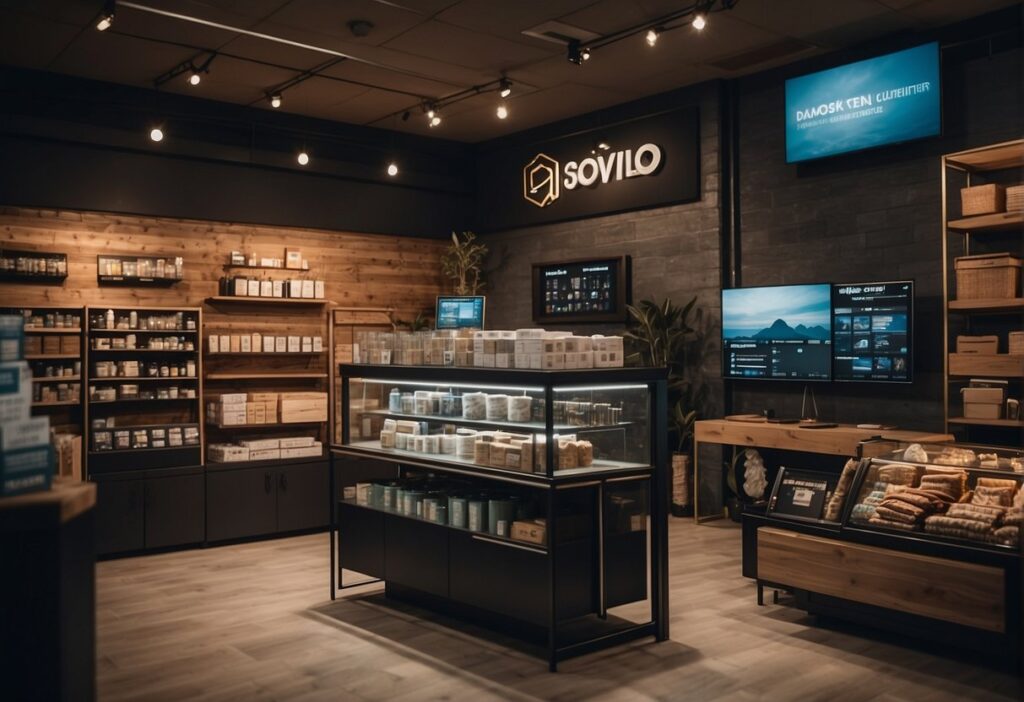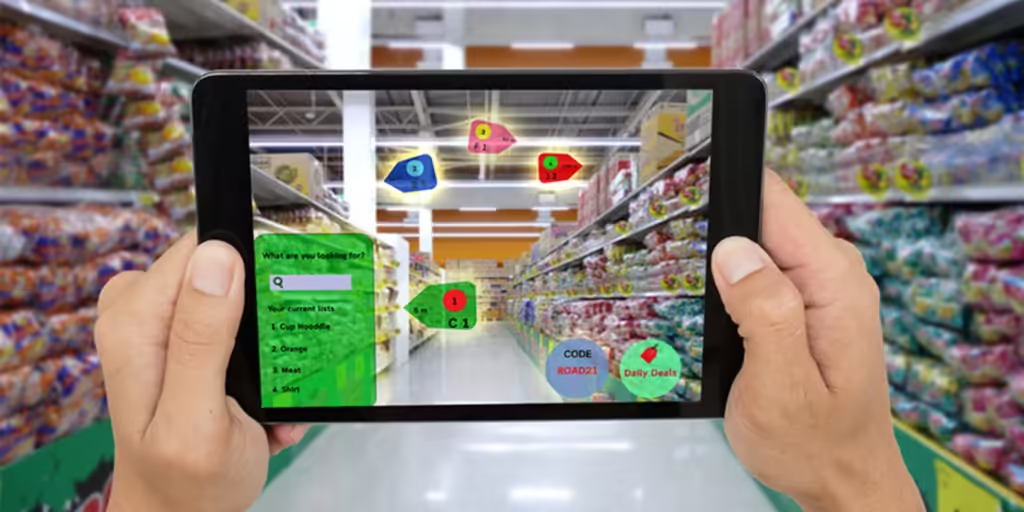Table of Contents
Introduction:
Artificial intelligence (AI) is no longer a tool reserved for big businesses with deep pockets. It’s becoming increasingly accessible to small retailers, offering new ways to optimize operations, improve customer experience, and stay competitive. By harnessing the power of AI for small retailers, businesses can unlock new opportunities, streamline processes, and create personalized experiences that keep customers coming back.
In this blog, we will explore the AI opportunities in retail, how small businesses can tap into their potential, the unlock value AI provides for business growth, and the future of AI in retail.

What are the Artificial Intelligence Opportunities in Retail?
AI for small retailers offers numerous opportunities, enabling them to enhance customer experiences, improve decision-making, and increase efficiency. Some of the key AI opportunities in retail include:
- Personalized Customer Experience: AI for small retailers enables businesses to personalize product recommendations and marketing messages based on customer preferences and buying behaviors. Machine learning algorithms analyze customer data to offer tailored experiences that drive engagement and sales.
- Inventory Management: AI for small retailers can predict demand and optimize inventory levels, ensuring that retailers have the right products in stock at the right time. This reduces overstock and stockouts, leading to more efficient operations and cost savings.
- Customer Service Automation: Chatbots and AI-powered virtual assistants can handle customer inquiries and provide support 24/7. This enhances customer service for small retailers and frees up staff to focus on more complex tasks.
- Fraud Detection: AI for small retailers helps detect and prevent fraud by analyzing transactions and identifying patterns of suspicious activity. This is especially useful for businesses where resources for fraud prevention might be limited.
- Dynamic Pricing: AI-driven algorithms allow small retailers to adjust prices in real time based on demand, competition, and other factors. This helps them stay competitive without manually changing prices frequently.
What is the Unlock Value of AI in Business?
The “unlock value” of AI refers to the untapped potential that AI brings to businesses, helping them gain a competitive edge by improving efficiency, reducing costs, and enhancing customer experiences. For small retailers, this unlock value comes in several forms:
- Efficiency and Automation: AI for small retailers automates time-consuming tasks such as inventory management, customer service, and sales forecasting, allowing retailers to focus on growing their business.
- Data-Driven Decision-Making: AI for small retailers provides insights based on large amounts of data, allowing retailers to make smarter decisions about products, pricing, and marketing strategies.
- Cost Reduction: By optimizing operations and automating repetitive tasks, AI for small retailers reduces labor costs, minimizes waste, and increases profit margins.
- Enhanced Customer Experience: AI for small retailers helps deliver personalized experiences, which can increase customer loyalty and lead to higher lifetime value.
In essence, AI for small retailers unlocks value by helping businesses operate more efficiently, make informed decisions, and better serve their customers, ultimately driving growth.

What is the Future of AI in Retail?
The future of AI for small retailers is bright, with advancements promising to reshape the industry further. Staying ahead of these trends will be crucial. Some key trends to watch include:
- Advanced Personalization: AI for small retailers will continue to refine personalization, allowing businesses to offer hyper-personalized experiences based on real-time customer data, preferences, and behaviors.
- AI-Driven Visual Search: Visual search technology powered by AI will allow customers to search for products by uploading images, making the shopping experience more intuitive and visual.
- Voice Commerce: As voice assistants like Alexa and Siri become more advanced, voice commerce is expected to grow, allowing customers to shop using voice commands. Small retailers can integrate voice-activated shopping features to enhance convenience.
- AI-Powered Augmented Reality (AR): AR-powered by AI will enable customers to try on products virtually before making a purchase, reducing the risk of returns and enhancing the online shopping experience.
- Sustainability Insights: AI for small retailers can help businesses make more sustainable decisions by predicting demand, optimizing supply chains, and reducing waste, which is becoming increasingly important for customers who value eco-friendly practices.
How Can a Small Company Use AI?
Even without massive budgets, small retailers can leverage AI in several impactful ways:
- Adopting AI-Powered Tools: There are numerous affordable AI tools available that help with customer relationship management (CRM), inventory management, and email marketing. Many of these tools are available as software-as-a-service (SaaS) solutions, making them accessible to small retailers.
- Implementing Chatbots for Customer Service: Chatbots are a cost-effective way for small retailers to automate customer service, providing instant responses to frequently asked questions and helping with customer support 24/7.
- AI-Powered Marketing Automation: Small retailers can use AI-driven platforms to automate their email marketing campaigns, segment their audiences, and create personalized promotions, all of which improve customer engagement and drive sales.
- Leverage AI for Social Media: AI for small retailers can help optimize social media presence by analyzing engagement data and recommending the best times to post, what type of content to create, and which platforms to focus on.
- AI-Based Sales Forecasting: Small retailers can use AI to predict sales trends and customer demand, helping them stock inventory more efficiently and avoid over- or understocking.

Case Studies:
Case Study 1: Personalized Marketing for a Small Fashion Boutique
A small fashion retailer used AI for small retailers to analyze customer purchase histories and preferences. The system automatically generated personalized product recommendations and sent tailored emails to customers. This resulted in a 25% increase in email engagement and a 15% boost in repeat purchases.
Case Study 2: Inventory Management for a Local Grocery Store
A local grocery store implemented an AI-driven inventory management system that predicted customer demand based on historical data and seasonal trends. This allowed the store to optimize its stock, reducing waste by 20% and ensuring popular products were always in stock.
Case Study 3: Chatbot Implementation for an Online Retailer
An online retailer integrated a chatbot into its website to handle customer queries and offer product recommendations. The chatbot handled 80% of inquiries without human intervention, leading to faster response times and improved customer satisfaction.
Conclusion:
AI for small retailers presents a wealth of opportunities, offering tools to improve customer experience, streamline operations, and drive growth. By adopting AI-powered solutions, small businesses can unlock value, remain competitive, and thrive in an increasingly digital retail landscape. As AI continues to evolve, its potential to transform the retail industry, including small retailers, is immense. Whether through personalized marketing, inventory optimization, or customer service automation, small retailers can leverage AI to stay ahead and grow their business efficiently.